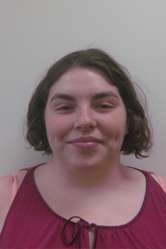Theatre
“Marketing for a Younger Audience in Live Theatre”

In order for live theatre to survive as an art form, we need to diversify our audiences, specifically by focusing on the group that patronizes theatre the least – people ages 18-30. I plan to test the effectiveness of certain marketing techniques on attracting this age group to live theatre. My basic tenants in choosing or creating specific marketing techniques to test will be to share much more content, to have the content created by people in the targeted age range, and to place the content where people 18-30 years of age will likely encounter it. I will implement these marketing techniques halfway through the first show’s run in the 2013-2014 theatrical season at Fells Point Corner Theatre, and test their effectiveness through audience surveys. At the end of the season, I will present Fells Point Corner Theatre with a report of all of my results, as well as a new proposed marketing plan for their future seasons, based on my findings.
How did you find your mentor for year research, scholarship, or artistic project?
I took a class taught by Dr. McCully in my freshman year and was enthralled by her extensive expertise and unique perspective on the theatre. I knew that I wanted to work with her from that moment, so we began a correspondence and she helped me to develop this research idea.
How did you know this was the project you wanted to do?
It’s been a passion of mine for a long time to eliminate or reduce the current stigma carried by live theatre – that it is an elitist art form for the educated and wealthy. Determining the most effective methods to engage a very underrepresented demographic seems to be an appropriate first step.
Do you get course credit for this work?
No, but I will receive a notation on my transcript from the Shriver Center and I am developing a relationship with a potential future employer.
How much time do you put into it?
It varies at this point, but once it gets into full swing, it will be at least 10 hours a week.
How did you hear about the Undergraduate Research Award (URA) program?
I started my undergraduate career as an Interdisciplinary Studies major, and it was recommended as a resource to aid in the completion of the required capstone project. Then, when I switched my majors, I still wanted to complete the project and the URA program still made sense to help make that happen.
What academic background did you have before you applied for the URA?
I have taken many theatre classes, with a good deal of business classes (like management, entrepreneurship, and marketing) mixed in.
Was the application difficult to do?
The hardest part was deciding exactly what the project should be. Once I had that figured out, the application came fairly easily.
How much did your mentor help you with the application?
I made a rough draft and my mentor helped me shape and polish the application to be the best it could be.
What else are you involved in on campus?
I am involved in the Theatre Department and the Musical Theatre Club, and I work at the Campus Information Center. I’m also in an off-campus a capella group.
What is your advice to other students about getting involved in research?
Don’t allow yourself to be limited by traditional definitions of research. You can complete research in any field, with a wide variety of projects. Let your imagination run wild, and then the nice people in the URA program can help you focus.
What are your goals for after graduation?
I plan to get a masters degree in arts administration and then work in a local theatre for a few years, while I learn all that I possibly can. Then I will open my own theatre company.
9/26/2018